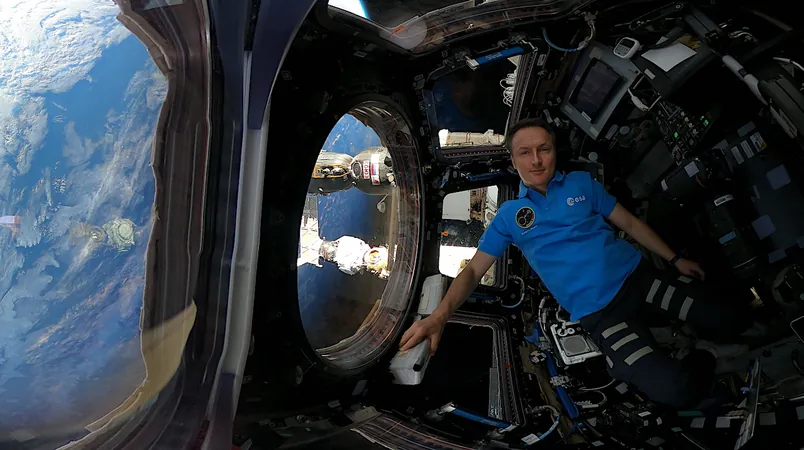
Groundbreaking NASA Research Unveils Secrets of Space Life Science
2024-10-01
Author: Sarah
On September 27, 2024, NASA released its latest Spaceline Current Awareness List, presenting a series of fascinating studies that delve deep into the impacts of spaceflight on biological systems. These findings could reshape our understanding of human health in space as well as inform future missions to the Moon and Mars.
Heart Health in Space:
A recent study led by Mair DB and colleagues unveiled significant heart complications induced by spaceflight. Through an innovative automated heart-on-a-chip platform, researchers observed contractile and mitochondrial dysfunction—a critical concern for astronauts on long-duration missions. Published in the Proceedings of the National Academy of Sciences, this paper urges further exploration into cardiac health during extended spaceflights.
Astronaut Crew Readiness Assessment:
Another key report by Landon LB highlights the preparedness of NASA and private astronauts working side by side on the International Space Station (ISS). A Technical Interchange Meeting facilitated by NASA brought together leading experts to identify research gaps that could enhance crew health and safety. This initiative is crucial as the agency prepares for upcoming missions, with an increasing number of private astronauts expected to join NASA's ranks.
Space Radiation Risks:
Groundbreaking research from Finkelstein SR and his team demonstrated that exposure to 56Fe ions, a type of heavy ion radiation prevalent in space, significantly raises the risk of lung and brain tumors in mice. This study offers a stark reminder of the potential dangers posed by cosmic radiation, reinforcing the need for effective countermeasures to protect crew members during future missions.
Behavioral Impacts of Galactic Radiation:
In another significant study, Yun S and collaborators assessed the long-term behavioral effects of galactic cosmic radiation in female mice. Their findings may inform strategies to mitigate the psychological and cognitive risks astronauts face on deep-space journeys, particularly those involving all-female crews.
Celebrating Data Transparency:
This year marks a momentous milestone for NASA's space life sciences, celebrating 30 years of data access through its archives. These invaluable resources have supported a wealth of research since the Skylab era and remain vital for ongoing scientific inquiries. These data banks are crucial for enhancing our understanding of life in extreme environments, enabling researchers to build on past successes.
Emerging Technologies for Human Health in Space:
New advancements demonstrate how engineered biological systems can assist in mitigating the negative effects of microgravity on human health. For instance, findings were shared regarding the role of various proteins that protect muscle function in space conditions, promising innovative approaches to muscle deterioration which is a significant issue for astronauts.
The implications of this research extend beyond just space travel; they may also have profound applications for healthcare on Earth, particularly in understanding diseases linked to mitochondrial dysfunction and the effects of radiation exposure.
As we look toward the future, NASA's ongoing commitment to pioneering research in space life sciences stands to enhance not only our exploratory capabilities but also the overall health of astronauts venturing into the unknown. Keep an eye out as these studies continue to unfold, and prepare for more incredible discoveries that might just change how we perceive life both in and beyond our planet!


 Brasil (PT)
Brasil (PT)
 Canada (EN)
Canada (EN)
 Chile (ES)
Chile (ES)
 Česko (CS)
Česko (CS)
 대한민국 (KO)
대한민국 (KO)
 España (ES)
España (ES)
 France (FR)
France (FR)
 Hong Kong (EN)
Hong Kong (EN)
 Italia (IT)
Italia (IT)
 日本 (JA)
日本 (JA)
 Magyarország (HU)
Magyarország (HU)
 Norge (NO)
Norge (NO)
 Polska (PL)
Polska (PL)
 Schweiz (DE)
Schweiz (DE)
 Singapore (EN)
Singapore (EN)
 Sverige (SV)
Sverige (SV)
 Suomi (FI)
Suomi (FI)
 Türkiye (TR)
Türkiye (TR)
 الإمارات العربية المتحدة (AR)
الإمارات العربية المتحدة (AR)